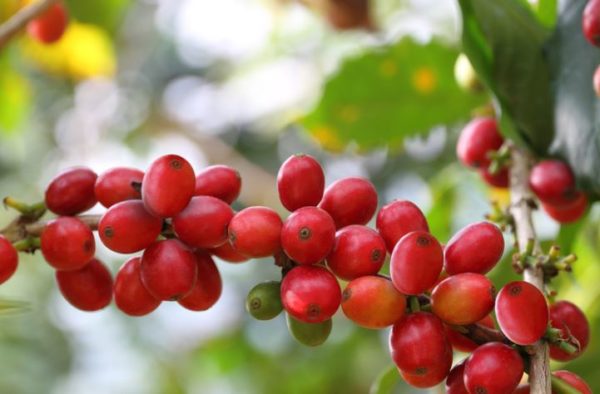
Coffee fruit, also known as coffee cherry or coffee berry, is a type of stone fruit produced by the coffee plant. It is considered a stone fruit because it has a pit in the middle that houses raw coffee beans.
The coffee fruit is small and green in colour and when it turns ripe it becomes deep red or purple colour.
As mentioned earlier the coffee beans are the seeds of the coffee fruit. During the production of coffee, this fruit flesh is typically discarded and the coffee beans are then dried, roasted, ground and brewed into coffee.
In recent years, research has pointed out the health effects of coffee fruit and now this ingredient is used in drinks, supplements and baked goods.
Here are 4 health benefits of coffee fruit:
1. High in antioxidants
Antioxidants are compounds that help protect your cells from oxidative stress and cell damage by fighting against free radicals. This reduces the risk of many chronic diseases such as heart disease, cancer, diabetes and other diseases.
Studies have shown that coffee fruit is jam-packed with beneficial antioxidants like chlorogenic acid, rutin, protocatechuic acid and gallic acid.
A 2008 study found that 20 athletes who took 800 mg of coffee fruit extract per day for 28 days had a slight increase in their antioxidant capacity.
Studies have shown that coffee fruit extract has anti-obesity effects due to the presence of chlorogenic acid in it. This chlorogenic acid has been shown to help burn fat and promote weight loss.
However, there are limited research studies and more research studies are needed to show the weight loss effects of coffee fruit on humans.
3. May boost immunity
Studies have shown the association between coffee cherry and the immune system. Animal studies have shown that consumption of coffee cherry extract helped in increasing the activity of immune cells in mice.
However, further research studies are needed to evaluate how coffee fruit may help enhance immune function in humans.
4. May promote brain health
Brain-derived neurotrophic factor (BDNF) is a type of protein that is important for promoting the growth and survival of neuronal cells in the brain. A study showed that the intake of 100 mg of whole coffee fruit concentrate increased levels of BDNF by 143 per cent. However, more studies are still required in this area.
Possible side effects of coffee fruit
Coffee fruit is generally considered safe if it is consumed in limited quantities. In one animal study, coffee fruit showed no adverse effects when it was given to rats. Also, coffee fruit has less caffeine content than coffee beans, so if you are sensitive to caffeine avoid the consumption of coffee fruit products.
Ways to use coffee fruit
Coffee fruit is widely available in the form of tablets, capsules and liquid extracts. But, there are many ways to use coffee fruit, which include the following:
- Coffee fruit is used to make cascara tea also known as coffee cherry tea. It is made by steeping the dried flesh of the fruit in hot water to bring out the flavour. And then the water is strained and the fruit pulp is discarded for a soothing beverage.
- You can add coffee fruit to mixed fruit juices.
- You can also try using coffee flour, which is made from the pulp of the coffee fruit. You can use coffee flour to make sweet recipes.

